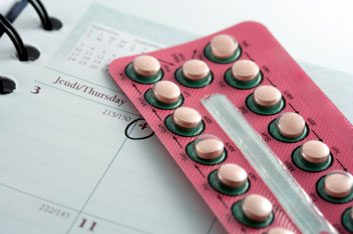
Medication to take before breakfast
Iron supplements: A glass of orange juice and an empty stomach provide the best conditions for iron pills. “Vitamin C enhances absorption,” says Akeel Jafar, a community pharmacist at Shoppers Drug Mart in Toronto. “The acidic environment [the juice creates] helps the iron be fully absorbed.” If iron supplements on an empty stomach leave you feeling nauseous, take them with food. “Absorption of the iron will be reduced a little bit, but you’ll still be getting some benefit,” he says.
Iron can also negatively interact with other pills, impeding the absorption of calcium supplements, thyroid drugs, multivitamins and antibiotics. If you take medications in addition to iron supplements, Jafar suggests speaking to your pharmacist about staggering your pills through the day to ensure that you receive optimum benefit.
Blood pressure medication: Blood pressure is typically higher in the mornings. Take your prescription when you rise to stabilize your blood pressure for the day ahead.
Thyroid medications: Thyroid pills work best when taken on an empty stomach. If you’re on additional medications – even over-the-counter products such as multivitamins – Jafar recommends consulting with your pharmacist for tailored advice on how to spread out your meds for optimum absorption.
Acid reflux and heartburn medications: To get a jump on acid reflux and heartburn, Jafar suggests taking medicines for these conditions before eating. “They need some time before breakfast to click in and start working, so that your symptoms are relieved through the day,” he says.
Osteoporosis medications: “The vast majority of osteoporosis medicines are taken first thing in the morning on an empty-stomach, be it a weekly or monthly dose,” says Jafar. There is one osteoporosis medication that is still given as a daily dose at bedtime, but it’s not as frequently prescribed as the weekly or monthly morning pills.

Medication to take after breakfast
Multivitamins: Finished breakfast? It’s time to pop your daily multivitamin. The fat content in your meal will help the pill’s fat-soluble vitamins (A, D, E and K) be absorbed. Multivitamins can also provide an energy boost, so take it now to kick start your day, rather than in the evening when you’re winding down.
If you’re also taking separate iron or calcium supplements, thyroid medications or antibiotics, you could have a battle for absorption within your digestive system. Jafar says that your pharmacist may suggest moving the multivitamin to after lunch, and spacing out the other morning meds to allow your body to metabolize each individual pill sufficiently.
Decongestants and allergy relievers: Stuffiness, and common allergy symptoms such as itchy eyes are often worse in the morning. Taking these pills after breakfast will help clear your sinuses, so you’ll feel less congested during the day. Jafar says that most people should avoid taking these medicines in the afternoon, or evening. “They can keep you awake, leaving you tossing and turning all night,” he says.
Probiotics: Always take probiotics after eating. The food in your stomach will encourage these digestive helpers to work to their fullest potential. If you take probiotics on an empty stomach, they’ll enter an unfriendly environment where acidic conditions can threaten their survival.

Medication to take in the morning
Arthritis medicine: Taking your arthritis medication before or after breakfast will “give symptom control through the day,” says Jafar. Many arthritis prescriptions come with a second dose that can be taken after dinner to ensure that sufferers wake up to limited stiffness, and increased mobility.
Diuretics: Frequent trips to the bathroom are the main side effect of water pills, so Jafar recommends taking diuretics in the morning to avoid disrupted sleep. “Patients taking diuretics in the evening can’t understand why they wake up during the night for frequent urination,” he says. Taking diuretics in the morning allows your body to eliminate excess water during the day, so your nighttime hours can be dedicated to snoozing, not recurring bathroom breaks.

After dinner
Cholesterol medications: Your liver produces the majority of its cholesterol while you sleep at night; taking your medications after dinner will help the liver maintain cholesterol levels in your blood.
Additional doses: Jafar says that many medications need to be taken twice a day. When picking up a prescription, or purchasing an over-the-counter medicine, always read the directions on the bottle for dosage recommendations. Have questions or concerns? Your pharmacist is your best resource.

Before bed
Sleeping pills: To prevent unwanted daytime napping, sleeping pills should be taken just prior to bedtime.

Helpful tips
To ensure the success of birth control pills, take them at the same time everyday. For example, if you take the Pill at 8 a.m. most days and then take it at 8:40 a.m. on a Saturday, you’re gambling with its efficiency, and you could become pregnant. “It’s really important to maintain consistency, and take it within a half hour of that same time each day,” says Jafar.
Before starting prescription antibiotics, review their usage with your pharmacist to avoid uncomfortable side effects or diminished results. Every antibiotic has unique instructions regarding dosages, food and other medications.
When taking medication, don’t consume grapefruit, or its juice without speaking to your pharmacist first. The fruit has an active ingredient that can dangerously increase the effects of certain medications including heart drugs. “As more research becomes available, more medications are being added to the list,” says Jafar.
Headache medications, especially prescriptions targeting migraines, should be taken as soon as symptoms appear.
Always rely on your pharmacist: “We’re the drug experts; we have a specialized knowledge, so come to us for any questions that you may have about prescription or non-prescription medications,” says Jafar.
Related:
• Do you need to take a daily multivitamin?
• Medication side effects: What to expect
• Could your medication be harming your health?
